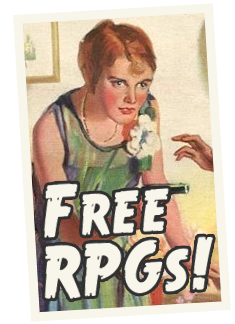World Creation 6: SteamKultur
In today’s World Creation post, I’d like to look at the culture of the average citizen.
First, a few general notes:
1.) At least tentatively, I am referring to the grouping of cities under the control of the council as the Great Machine.
2.) There are probably around 10 major cities, each of which has a major councilor attached, with many smaller ones that are either under the jurisdiction of the larger cities or run by local governors under council advisory.
3.) There are only very infrequent riots in the major cities, but in the minor cities occasionally a small uprising must be quelled. Usually, these uprisings form around an issue, such as insufficient coal shipments, rather than the major issue of sovereignty.
And now, we begin our look at culture.
(Brainspill Ramble Mode: On)
In the Great Machine, just as in our reality, there is a definite range of refinement among entertainment and society.
A lower class worker (say, a factory worker or Warder) might awaken, read a weekly newsletter to catch up on the latest shipment logs and local news, eat some breakfast and then get to work. He may not eat during work, instead having a large dinner later. After work, he has a few activities at his fingertips: he can go drinking at a pub (common among the lower wage workers), he can go to an (illegal) bare-knuckle fighting ring, he could listen to a local ocarina, fiddle or glockenspiel player or he could simply indulge in a hobby, such as clockmaking, whittling, wireworking or simple mechanics. Sports include versions of soccer, ninepin bowling, and a sort of brutal contact sport played in alleys known as Cogroll. Gambling with dice is certainly not out of the question, and is not strictly illegal in most parts of the Great Machine.
A middle class citizen (such as a shopkeeper, an airship manager, or a clerk) would probably read a daily newsletter, one that might have a somewhat broader scope than the laborer’s weekly. He might also listen to a Seryinski Box, a sort of complex music box that can play a crude, but multi-layered, version of a programmed song. He would probably have a snack-like meal three hours after breakfast, and then another meal four or so hours later, before finally dining late in the evening. In his free time, he might play an instrument, such as the flute, indulge in hobbies such as metalworking or calligraphy, and amuse himself with simple automatons, not unlike windup toys. He will probably be decently well read, perhaps subscribing to a poetry or short fiction circular. His idea of a night out might consist of dining in a small, stand-like eatery or viewing a show, such as mechanized puppet shows or plays enacted by flesh-and-blood-humans. He is unlikely to participate in any leisure activities that involve much physical exertion, as this is viewed as being somewhat beneath his station.
A higher class citizen (such as a council advisor, a high artist, or a shipment director) would probably get a daily newsletter much like the one the middle class citizen receives. His eating habits are also similar. He is probably wealthy enough to afford complicated machines that make his life easier, such as automatic temperature regulation devices or cleaning mechanisms. A higher class citizen would entertain himself by dining in small café-like restaurants, watching high-art mechanical displays (automaton ballets, for example), or listening to skilled musicians from musical colleges. His hobbies might extend to complicated engineering, the study of chemicals, or book collection.
A few other cultural notes:
• The dominant painting styles, at least at the time the setting would take place, are Realist and Neoclassical.
• Popular music is typically Neoclassical, characterized by smooth, relaxed melodies that fade into the background.
• Circuses do travel through the cities, some of them even sponsored by the Great Machine. These circuses often try to spread pro-technology, pro-industrial propaganda by displaying entertaining automatons and displays of creative implementation of steam power.
• Most of the best artists of all types congregate in artistic colleges, which distribute/find audiences for the work of the artists. Decent artists can make a decent living off their work. Good artists can make a good living off their work.
This post is pretty much just a fluff-dump to put some of my future posts in context. As hinted by the Week to Come post, the next World Creation post will deal with the seedy criminal side of the Great Wheel.







Fascinating! Although, permit me a question, how involved are the automatons in the arts, exactly? Do skilled artists interact with skilled machines?
Only rarely, although in addition to the music-playing machines, there are some curiosities such as automatons that can pain simple pictures.
sounds a lot like modern society